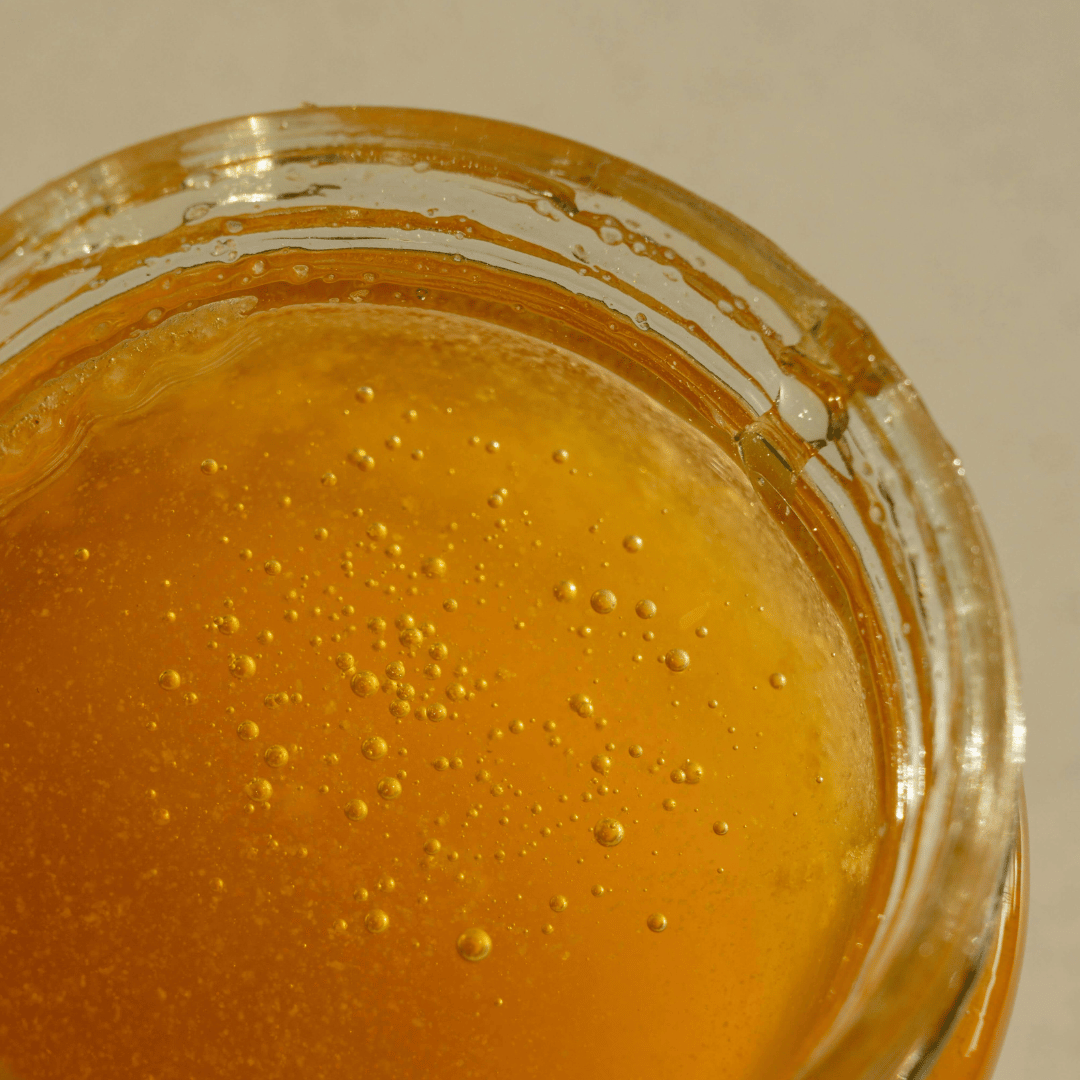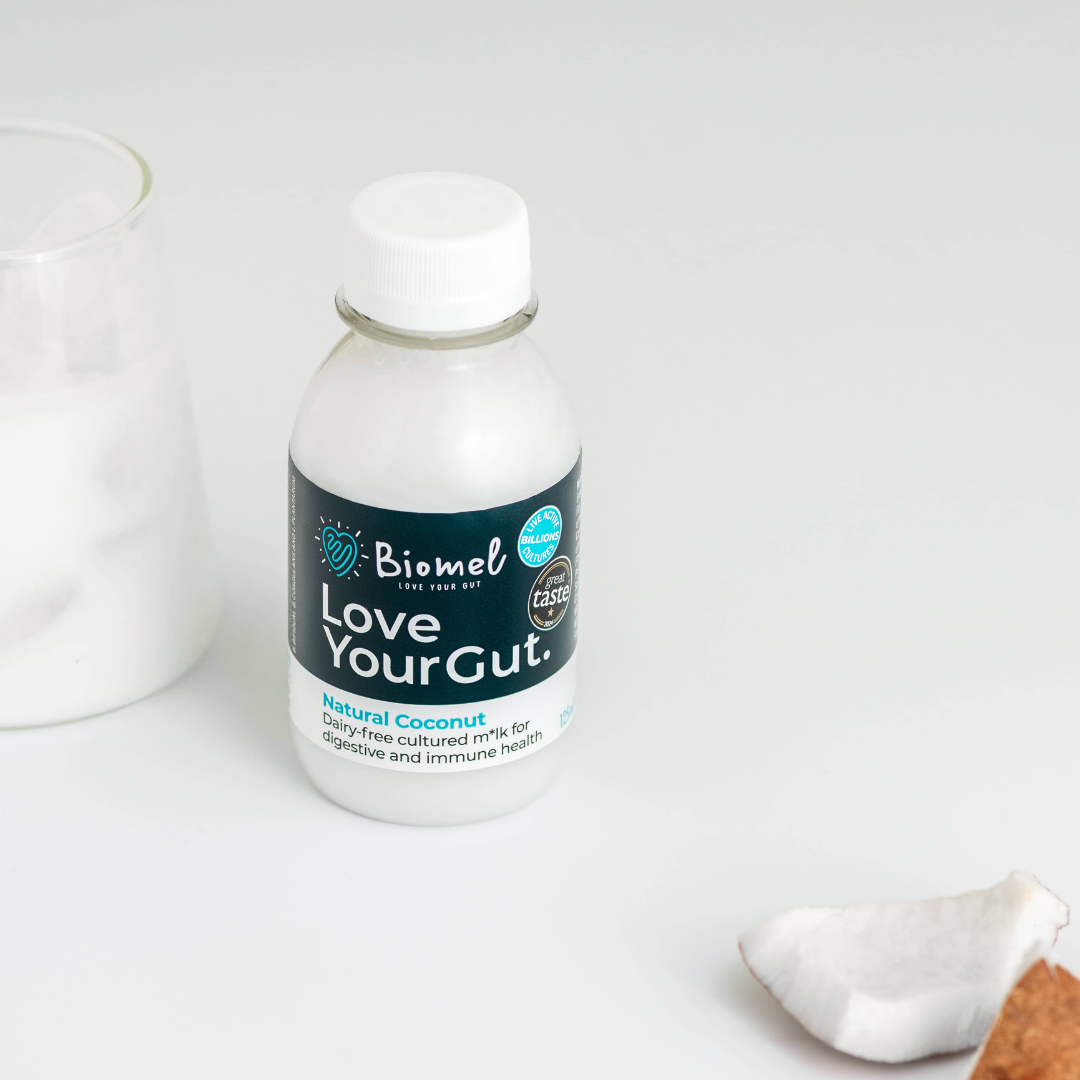A Dietitian’s Guide to a Gluten-Free, Gut-Friendly Diet

Have you ever wondered how to support your gut health on a gluten-free diet? We spoke to Registered Dietitian Amy Harman about how to follow a gluten-free diet without compromising the health of your gut. Many gluten-free packaged foods can be highly processed, often containing less fibre and more sugar, salt, and saturated fat than their gluten-containing counterparts. That’s why it's important to focus not only on removing gluten but also on maintaining a gut-friendly approach.
What is in the gut? Understanding the gut microbiome
The gut microbiome refers to the trillions of microorganisms (also known as the microbiota) and the specific areas within the body where they reside. Evidence suggests that maintaining a balanced gut microbiome positively affects digestion, immune health, and even cognitive function via the gut–brain axis¹,². This highlights the gut’s crucial role in supporting both mental and physical health.
Coeliac disease: what’s happening in your gut
In people with coeliac disease, gluten damages the lining of the small intestine, causes inflammation, and reduces the body’s ability to absorb nutrients. Several studies have shown that coeliac disease is associated with changes to the gut microbiota, resulting in an imbalance known as dysbiosis³. This often involves a decrease in protective, anti-inflammatory bacteria and an increase in potentially harmful strains⁴.
Staying gluten-free without missing out on fibre
Fibre is essential for healthy digestion. It helps regulate blood sugar, lowers cholesterol, provides essential nutrients, and some types of fibre even act as prebiotics – feeding the beneficial bacteria in your gut. Depending on the type (soluble or insoluble), fibre can help alleviate both constipation and diarrhoea.
Some research suggests that people on a gluten-free diet often consume less fibre due to avoiding gluten-containing whole grains and the lower fibre content of many gluten-free products⁵. However, it is possible to meet the recommended intake of 30g of fibre per day with the right choices.
Top gluten-free fibre-rich foods
-
Fruits
-
Vegetables
-
Seeds
-
Nuts
-
Gluten-free whole grains (e.g. certified gluten-free oats, brown rice, quinoa, buckwheat)
-
Legumes (beans, lentils, chickpeas)
Tips to boost fibre intake on a gluten-free diet
-
Eat the skins of fruits and vegetables when possible (e.g. apples, potatoes) – just wash them thoroughly
-
Aim for at least five servings of fruits and vegetables per day (e.g. two fruit and three vegetable portions)
-
A portion can be roughly measured by a handful or 80g per serving
Reducing ultra-processed gluten-free foods
Many packaged gluten-free products are highly processed and may contain more sugar, saturated fat, and salt than their gluten-containing counterparts. These types of foods – along with excess alcohol – can negatively affect the gut microbiome and increase inflammation.
UK dietary guidelines recommend limiting saturated fat intake to no more than 20g per day for women and 30g for men. Opting for unsaturated fats instead can benefit both your heart and your gut.
Tips for reducing ultra-processed gluten-free foods
-
Focus on whole gluten-free foods such as lean meats, legumes, vegetables, and gluten-free whole grains
-
Limit your intake of biscuits, cakes, protein bars, sweetened cereals, processed meats (e.g. salami, snack meats, pre-packaged ham), margarines, and oil-based spreads
-
Prioritise healthy unsaturated fats like:
-
Olive oil
-
Avocado
-
Nuts and seeds
-
Oily fish (aim for at least one portion per week)
-
Aim for no more than one-third of your total daily energy intake to come from fats (approximately 74g for women and 92g for men).
Live cultures and gut health on a gluten-free diet
Live cultures - found in products like kefir, yoghurt, and some supplements – have become popular for their potential role in supporting gut health. They may help restore gut microbial balance, especially after illness or antibiotic use⁶.
Promising studies show that consuming live cultures may have the potential to ease symptoms of coeliac disease. However, there is still insufficient evidence to make specific recommendations for people with coeliac disease.
Top tips for including live cultures
-
Ensure any products consumed are clearly labelled gluten-free
-
Introduce gradually, starting with small amounts, as some people may initially experience bloating or changes in bowel movements
Avoiding cross-contamination: crucial for gut and coeliac health
Even with strict adherence to a gluten-free diet, the gut microbiome may not fully return to normal in those with coeliac disease. One potential reason is continued exposure to trace amounts of gluten through cross-contamination⁷.
Tips to avoid gluten cross-contamination
-
Use separate cookware and utensils for gluten-free food preparation
-
Refer to reliable coeliac-safe online resources
-
Consult with a qualified gluten-free dietitian for tailored advice, especially when eating out
Conclusion: achieving gut health on a gluten-free diet
Supporting a healthy gut while following a gluten-free diet is achievable with small, mindful dietary changes that also offer wider health benefits.
Key takeaways
-
Aim for the recommended 30g fibre intake per day
-
Reduce ultra-processed gluten-free foods and alcohol
-
Prevent cross-contamination
-
Consider gluten-free sources of live cultures, if tolerated
Although more research is needed – particularly in coeliac populations – these habits can help optimise gut health and support long-term wellness on a gluten-free journey.
Trusted Sources:
- Appleton J. The gut-brain axis: Influence of microbiota on mood and mental health. Integr Med (Encinitas). 2018;17(4):28–32.
- World Health Organization. Health and nutritional properties of probiotics in food including powder milk with live lactic acid bacteria. Report of a joint FAO/WHO expert consultation. 2001.
- Saviano A, Petruzziello C, Brigida M, et al. Gut microbiota alteration and its modulation with probiotics in celiac disease. Biomedicines. 2023;11(10):2638. doi:10.3390/biomedicines11102638
- Akobeng AK, Singh P, Kumar M, et al. Role of the gut microbiota in the pathogenesis of coeliac disease and potential therapeutic implications. Eur J Nutr. 2020;59:3369–90. doi:10.1007/s00394-020-02324-y
- Vici G, Belli L, Biondi M, et al. Gluten free diet and nutrient deficiencies: A review. Clin Nutr. 2016;35(6):1236–41.
- Dahiya D, Nigam PS. Antibiotic-therapy-induced gut dysbiosis affecting gut microbiota–brain axis and cognition: Restoration by intake of probiotics and synbiotic. Int J Mol Sci. 2023;24(4):3074. doi:10.3390/ijms24043074
- Palmieri O, Castellana S, Bevilacqua A, et al. Adherence to gluten-free diet restores alpha diversity in celiac people but the microbiome composition is different to healthy people. Nutrients. 2022;14(12):2452. doi:10.3390/nu14122452
*At Biomel, your well-being is our top priority. While we take great pride in our expertise in gut health and overall wellness, we understand that every gut is unique. The content we provide is not meant to diagnose, treat, cure, or prevent any illness, or replace the advice of your GP. We strongly encourage you to consult with a healthcare professional if you have any health concerns. Rest assured, we are here to support you throughout your journey, so you are never alone. Our in-house nutritionists will always be here to support you on your journey to optimal gut health.



